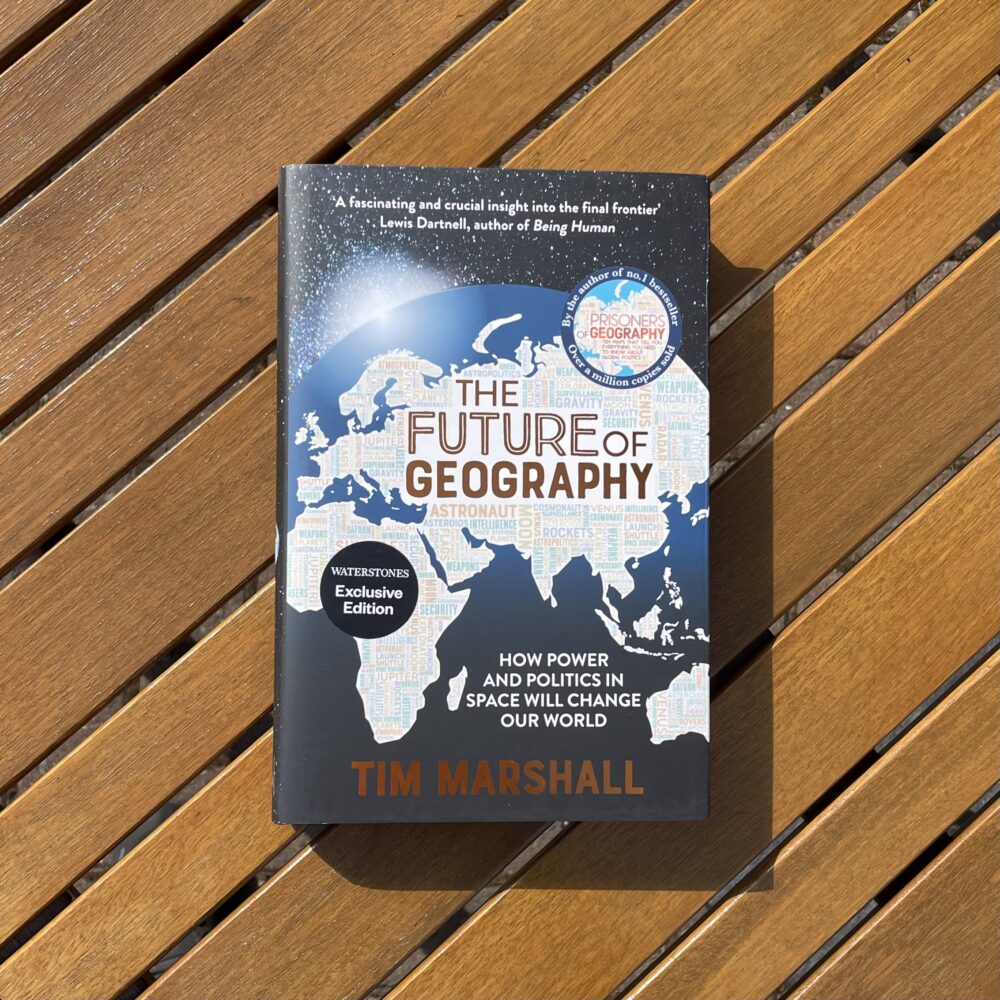I’ve been reading ‘The Future of Geography’ by Tim Marshall

As well as his outstanding journalism over the past thirty years, including many years as Diplomatic Editor for Sky News, Tim Marhsall has written a couple of books which I’ve previously devoured. 2016’s Prisoners of Geography presented ten maps and explained how the geography displayed influenced the development of nations and the political relationships between countries. I was enthralled, so much so that I read 2017’s Worth Dying For the very next month. This was an utterly brilliant exploration of different flags and the ideas they intend to communicate—not just those of countries, but also institutions like the United Nations and the Olympic movement, and even ideas, like the white flag of surrender.
I skipped 2019’s memoir Shadowplay, mostly because it was described as ‘harrowing’, and I wasn’t in the frame of mind to cope with that. And the news of 2021’s The Power of Geography—a return to the ‘ten maps’ format—entirely passed me by until I came to write this review.
Back in April, Marshall’s latest book—The Future of Geography— was published. I was in two minds whether to buy it. It was sold as an exploration of geopolitics in space, or ‘astropolitics’ as it’s known, and I thought that maybe this would be a little removed from Marshall’s area of expertise and interest. I worried that the book might be a disappointment. In the end, Wendy convinced me to buy it.
Wendy was right. I thought this was an absolute tour de force, my favourite of the three Marshall books I’ve read. This was a fascinating account of the history of space exploration to date and the underlying international politics. Marshall has a real gift for bringing such apparently dry subjects to life, and to squeeze a little humour out of them. I felt like I learned loads from this book, and gained a whole new insight into an aspect of space exploration which I’ve never really thought about before. It’s never occurred to me, for example, that attacks on satellites which have the effect of ‘blinding’ nuclear early-warning systems have the potential to precipitate nuclear war.
I was particularly fond of Marshall’s frequent references to the early days of seafaring, and his comparison of space law to maritime law. Casting early spacefarers as equivalent to early seafarers helped me to think much more clearly about the issues which space exploration is likely to raise. It also helped me to better orientate myself as to where humanity finds itself in ‘space history’.
It was also just really refreshing to read a book on space which isn’t primarily concerned with technology, but rather with some of the wider societal issues the technological developments precipitate.
Without a doubt, this is one of my favourite non-fiction books of the year so far, and I’d highly recommend it.
This post was filed under: Post-a-day 2023, What I've Been Reading, Tim Marshall.